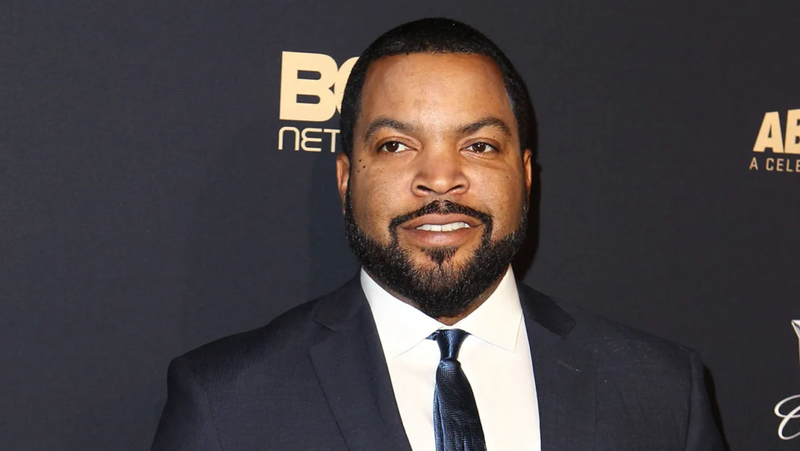O’Shea Jackson, better known by his stage name Ice Cube, is a multifaceted icon in the realms of music, film, and pop culture. From his groundbreaking work as a rapper and lyricist with the pioneering group N.W.A. to his successful transition into acting, directing, and producing, Ice Cube’s influence spans over three decades. His sharp lyrics, no-nonsense persona, and business acumen have made him one of the most respected figures in both hip-hop and Hollywood.
Ice Cube’s Early Life and Background
Born on June 15, 1969, in South Central Los Angeles, Ice Cube grew up in a city rife with social tension and violence, which would later serve as the backdrop for much of his music. His parents were working-class: his father, Hosea Jackson, was a groundskeeper and machinist, and his mother, Doris, was a hospital clerk. Ice Cube’s early experiences with gang violence and police brutality heavily influenced his worldview and shaped his lyrical voice.
Key Facts About Ice Cube’s Early Life:
- Birth Name: O’Shea Jackson.
- Birthdate: June 15, 1969.
- Education: Attended William Howard Taft High School in the San Fernando Valley, where he developed a passion for writing and performing.
- Early Interest in Music: Ice Cube began writing rap lyrics in his teenage years, influenced by the rise of hip-hop culture in the 1980s.
- Net Worth: According to Northamptonshire News, despite a lot of theories Ice Cube is not (at least yet) a billionaire, with a current net worth of approximately $820 million.
Fact: Ice Cube earned his nickname from his older brother, who used to threaten to lock him in a freezer until he turned into an ice cube.
While many of his peers were getting caught up in gang culture, Ice Cube found refuge in music, using it as a means to channel his frustrations and experiences.
The Formation of N.W.A. and the Rise of Gangsta Rap
Ice Cube’s career truly began to take off in the mid-1980s when he met fellow rapper Dr. Dre. Together with DJ Yella, MC Ren, and Eazy-E, they formed N.W.A. (Niggaz Wit Attitudes), a group that would revolutionize hip-hop by introducing the world to gangsta rap. With their explicit lyrics and unapologetic storytelling, N.W.A. painted a vivid picture of life in South Central Los Angeles, tackling issues like racial profiling, police brutality, and poverty.
Key Achievements of N.W.A.:
- Album Success: N.W.A.’s debut studio album, Straight Outta Compton (1988), was a cultural landmark, often cited as one of the most important hip-hop albums of all time.
- Impact: The track “F*** Tha Police” sparked controversy and drew the attention of the FBI, who sent a warning letter to the group’s record label.
- Fact: Straight Outta Compton was certified 3x Platinum by the RIAA, selling over three million copies in the U.S.
Ice Cube’s role in N.W.A. as the group’s chief lyricist was crucial. His raw, unfiltered lyrics offered a no-holds-barred commentary on the harsh realities faced by Black communities in America.
Tip: Ice Cube’s success as a lyricist underscores the importance of authenticity in art. Aspiring artists should focus on telling their own stories and offering perspectives that are both genuine and reflective of their personal experiences.
Going Solo: Ice Cube’s Breakout Solo Career
In 1989, Ice Cube made the bold decision to leave N.W.A. due to financial disputes with the group’s manager, Jerry Heller. Going solo was a risk, but it quickly paid off. Ice Cube’s debut solo album, AmeriKKKa’s Most Wanted (1990), was both a critical and commercial success, cementing his status as a powerful voice in hip-hop.
Key Facts About Ice Cube’s Solo Career:
- Debut Album: AmeriKKKa’s Most Wanted went Platinum within a few months of its release, a significant achievement for a solo artist at the time.
- Political Activism: His lyrics became even more politically charged, addressing issues like systemic racism, police brutality, and economic inequality.
- Influence: Ice Cube’s second album, Death Certificate (1991), is often hailed as one of the most influential hip-hop albums, with tracks like “No Vaseline” targeting former N.W.A. members and “Black Korea” addressing racial tensions.
Stat: Ice Cube’s solo albums have sold over 10 million copies worldwide, making him one of the most successful solo rappers of the early 1990s.
Tip: Ice Cube’s departure from N.W.A. and subsequent solo success demonstrate the power of independence. Creators should not be afraid to take risks, especially if they believe in their vision and have the talent to back it up.
Ice Cube’s Transition to Film and Hollywood Success
In the early 1990s, Ice Cube began making the transition from music to film, proving that his talents extended far beyond the recording studio. His first foray into acting came in 1991, when he starred in Boyz n the Hood, a critically acclaimed film directed by John Singleton. Ice Cube’s portrayal of Doughboy, a troubled young man growing up in South Central L.A., earned him widespread praise and launched his acting career.
Key Facts About Ice Cube’s Film Career:
- Breakout Role: Boyz n the Hood (1991) was a major success, earning over $57 million at the box office and becoming a cultural touchstone for urban America.
- Writing and Directing: Ice Cube later wrote and starred in the cult-classic comedy Friday (1995), which spawned two sequels and a dedicated fanbase. The film was made on a modest budget of $3.5 million but earned $28 million at the box office.
- Diverse Roles: He continued to take on a variety of roles in films like Three Kings (1999), Barbershop (2002), and 21 Jump Street (2012), showcasing his versatility as an actor.
Stat: Ice Cube has starred in and produced over 40 films, grossing more than $1.5 billion globally at the box office.
Fact: Friday, which Ice Cube co-wrote with DJ Pooh, is considered one of the most influential comedy films of the 1990s, often credited with redefining urban comedy.
Tip: Ice Cube’s success in Hollywood is a testament to the importance of diversifying one’s career. By expanding his talents into film and screenwriting, he opened new doors and increased his longevity in the entertainment industry.
Entrepreneurship and Business Ventures
Beyond music and film, Ice Cube is also a successful entrepreneur. He founded his own film production company, Cube Vision, which has produced many of his films, including the Friday and Barbershop franchises. In 2017, Ice Cube co-founded the BIG3, a professional 3-on-3 basketball league featuring former NBA players.
Key Business Ventures:
- Cube Vision: Founded in 1995, Cube Vision has produced blockbuster hits like Friday and Ride Along (2014), establishing Ice Cube as a key player in Hollywood.
- BIG3: The BIG3 league quickly became a fan favorite, blending sports and entertainment while giving retired NBA players a chance to compete at a high level.
- Music Label: Ice Cube also founded his own record label, Lench Mob Records, in the early 1990s, through which he released much of his own music as well as music from up-and-coming artists.
Stat: As of 2024, Ice Cube’s estimated net worth is $160 million, stemming from his work in music, film, and his business ventures.
Tip: Ice Cube’s entrepreneurial spirit shows the value of building a brand. By leveraging his fame and talent into business ventures, he was able to secure financial independence and long-term success.
Ice Cube’s Personal Life and Legacy
Ice Cube has managed to maintain a relatively private personal life despite his high-profile career. He married his wife, Kimberly Woodruff, in 1992, and they have four children together. One of his sons, O’Shea Jackson Jr., has followed in his father’s footsteps, both in music and acting, portraying Ice Cube in the biographical film Straight Outta Compton (2015).
Key Facts About Ice Cube’s Personal Life:
- Wife: Kimberly Woodruff, married since 1992.
- Children: Four children, including actor and rapper O’Shea Jackson Jr.
- Legacy: Ice Cube’s life and career were immortalized in Straight Outta Compton, which chronicled the rise of N.W.A. and earned over $200 million at the global box office.




